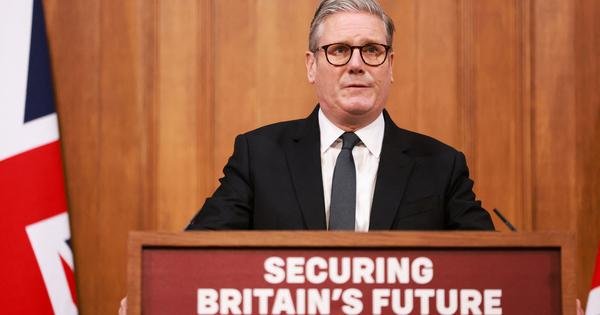UK’s New Immigration Rules for International Students

The UK government has announced new plans to manage immigration. These plans include fresh rules for international students.
Key Changes in Immigration Policy
The recent white paper on immigration outlines some major changes:
- Graduates can now stay in the UK for 18 months after their course ends. This is six months less than before.
- Universities will face stricter standards to sponsor visas. Those with high dropout rates may lose this privilege.
- A 6% levy will be added to universities’ income from international students.
Universities worry these changes will hurt their finances. However, the government is focused on controlling immigration.
Impact on Universities
Universities are a big asset for the UK. They bring global influence and income. After last year’s election, science minister Peter Kyle promised that Labour would end the “war on universities” started by the previous government. This included a friendlier approach to international students.
Reasons Behind the Policy Changes
There are a few reasons for the changes in the white paper:
- The rise of nationalist parties that oppose immigration, similar to trends in other popular destinations for international students.
- The government’s goal to reform higher education in the UK.
Politics and Immigration
Two weeks before the immigration white paper was released, the Reform party took control of 10 local authorities across England, winning 677 seats. The party’s growing popularity is a concern for the Labour government.
Reform is concerned about the effects of immigration on communities and wages. This affects international students because they are counted in immigration statistics and often stay to work.
Like nationalist and anti-immigration parties in other countries, Reform also gets more support from voters without a university degree.
In the US and Netherlands, similar groups have cut university funding and reduced international student numbers once in power. But these policies are not just from nationalist parties.
Canada and Australia’s Liberal and Labour governments also set limits on international student recruitment before their re-election earlier this year.
This seems to be the strategy of the UK’s Labour party – to reassure voters who are more worried about immigration than university finances.
Higher Education Policy
The government believes employers rely too much on migrant labor, and universities on international students. It wants them to focus more on developing the UK workforce. This means employers need to invest in skills development, and universities need to offer courses that build key skills for the future.
The white paper states that “there has been a long-term lack of coordination or investment to deliver the skills and capabilities our economy needs”.
In England, it’s hard to coordinate higher education investment because most government funding goes through loans to students. This pushes universities to meet demand from young people, which may not match economic and public service priorities.
After years of slow economic and productivity growth but repeated minimum wage increases, one-tenth of graduates now earn just above that threshold.
In response, the last government encouraged young people to take apprenticeships instead of university degrees. It also let student maintenance loans and fees lose value in real terms.
Universities filled the income gap with international students – especially one-year taught postgraduates from Nigeria and India who often bring family members and then stay to work. This made universities depend on short-term income, while increasing immigration numbers.
Changes to family visa rules, along with a global economic downturn and geopolitical tensions, have led universities to predict a 21% drop in new international student entrants this year. And 44% of universities expect to be in financial deficit.
Unlike the previous government, the current one agrees that UK student fees should rise with inflation, so it has allowed this for the first time since 2017. But it wants universities to change in return. Instead of relying on international students, they should make efficiencies and focus on courses that match government priorities.
In a system mostly funded by student fees, there are few ways to influence this. The Office for Students, which oversees higher education, has been asked to focus on managing quality and financial risks rather than policy.
Its funding for strategic priorities has been cut. However, there are three measures in the white paper that could become important.
First, the government is reforming the apprenticeships levy, so it can be used more flexibly for workforce development priorities. Second, stricter sponsorship rules aim to steer international recruitment towards courses that provide the highest levels of skills and knowledge. Third, the proposed levy on international student income will help the government invest in priority courses, rather than relying on student choice.
The first measure is already being put into action. A new organization, Skills England, has been set up to decide investment priorities.
This may include funds from the proposed levy on international student income, though the example of Australia suggests this may be tough. Regardless, there is a mood in government for higher education reform.
Chris Millward is Professor of Practice in Education Policy, University of Birmingham.
This article was first published on The Conversation.



